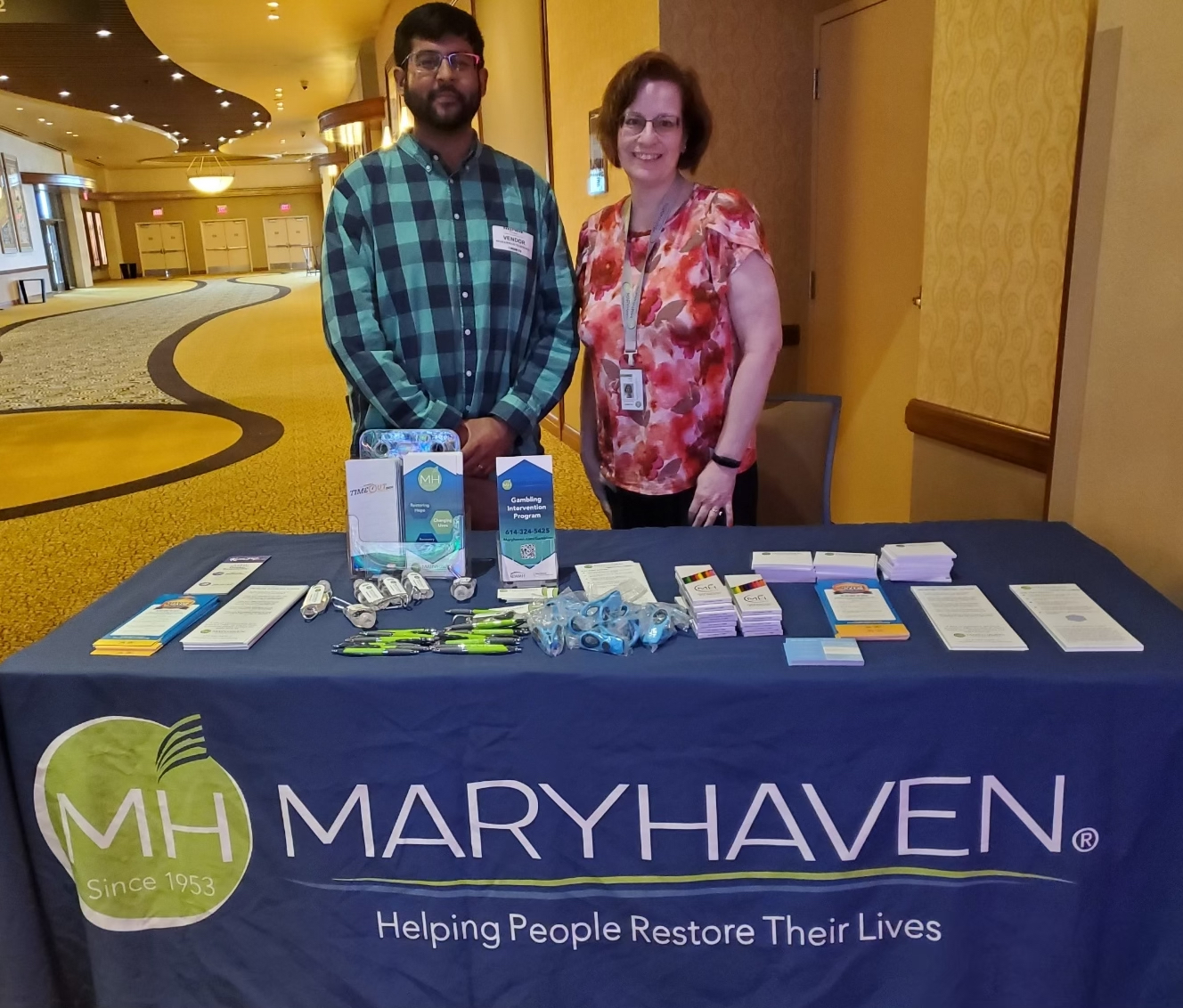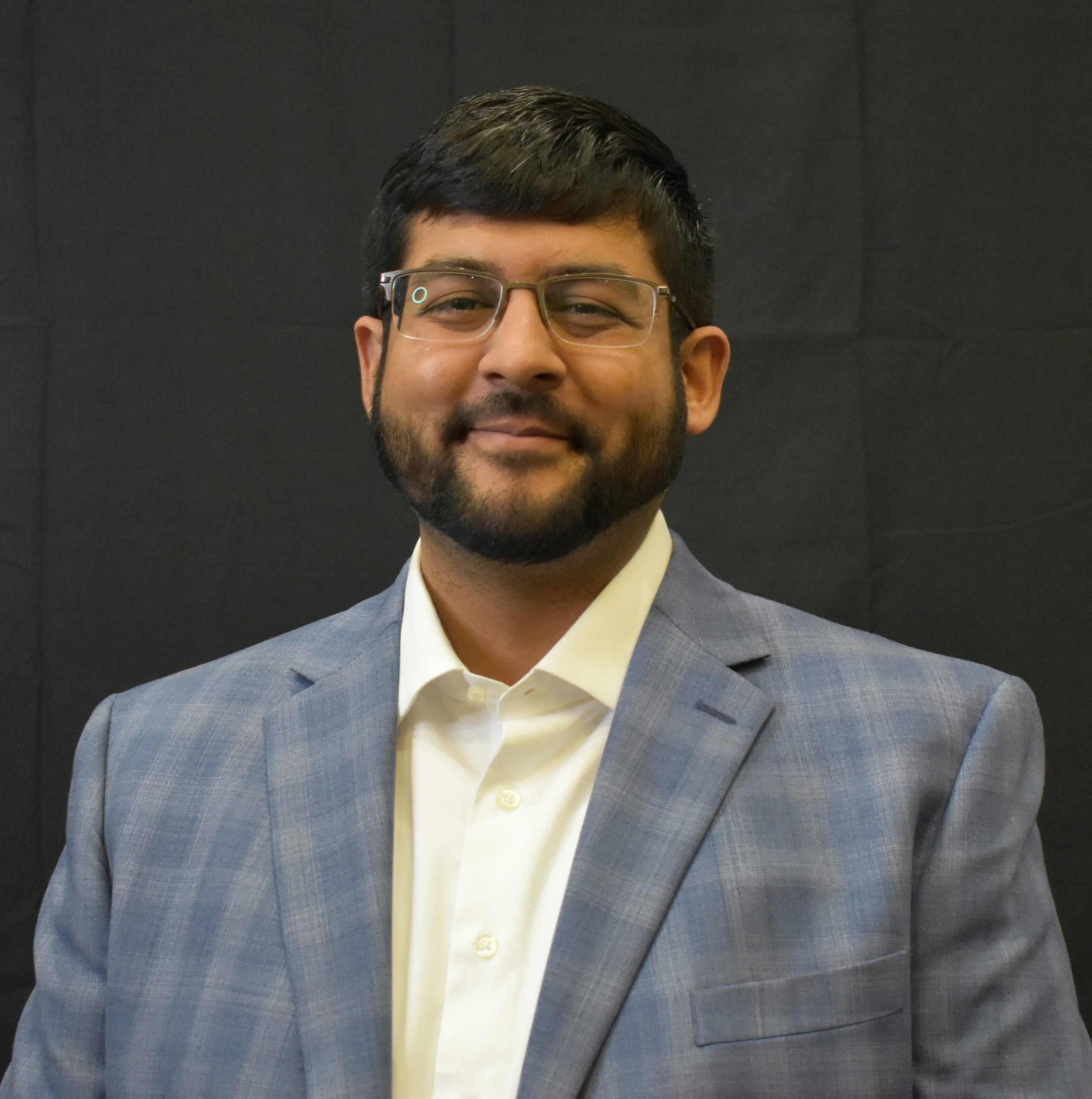As I reflect on our team’s many discussions with the community during Problem Gambling Awareness Month this March (including when Janet and I visited Hollywood Casino last week, see photo), there’s one group, in particular, that stands out: Parents of those struggling with gambling.
We’ve talked with parents of teens, parents of college graduates and everything in-between. Our friends at Pause Before you Play and Change the Game Ohio noted that one is six parents don’t even know if their teen is betting online. They offer some tips for parents of younger children and teens, and I would sign off on any parent being more aware of their youth’s online activity and profile.
For parents of college-aged children and older, the problem is typically deeper. For those seek treatment from Maryhaven, the story often follows a familiar pattern:
- The gambler started betting using offshore websites or a bookie, typically with a peer or friend showing them how to bet on sports.
- Once they turn legal age, the flood gates open, with legalized sports betting and access to many different betting apps (offshore websites or bookies only have so much available in their credit lines, but legal online betting apps don’t have such limitations).
- Now gambling too much, they will start using credit cards and borrowing money from others – this often involves lying to others (including their parents), another tell-tale sign something is wrong.
For parents, the earlier they can recognize the steps above the better and that usually means identifying warning signs like these:
- a disinterest in regular activities/hobbies
- seeking isolation more frequently
- a sudden drop in grades (even a semester off without adequate explanation)
- needing additional help with rent or other bills
All of my younger clients have experienced these warning signs. Some have quit or lost their jobs. Some have even used their student loan money for betting. All have been preoccupied by betting to a point that they don’t remember what they once enjoyed in their free time.
This last point is key and is one of the first things we talk about – reengaging in the activities outside of gambling that bring joy. Finding those actions and behaviors that can take the place of gambling is a great first step.
While we’ve talked previously about how quickly these younger gamblers are getting into trouble, reporting problem gambling sometimes after just months of problematic play, one noted benefit is that they’re getting help quicker than ever before. (Gamblers Anonymous is also noticing that younger gamblers are attending their meetings, and we’ll talk about the power of groups in our next blog)
So, if you’re a concerned parent, take that first step and have the conversation. Or, if it’s past a point of comfort, reach out to our team. Our website has a quick five-question screening tool and we are always just a call (614-324-5425) or click (https://maryhaven.com/gambling/contact/) away, whether it be asking a simple question, needing initial resources, or discussing treatment options.

